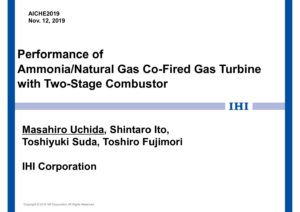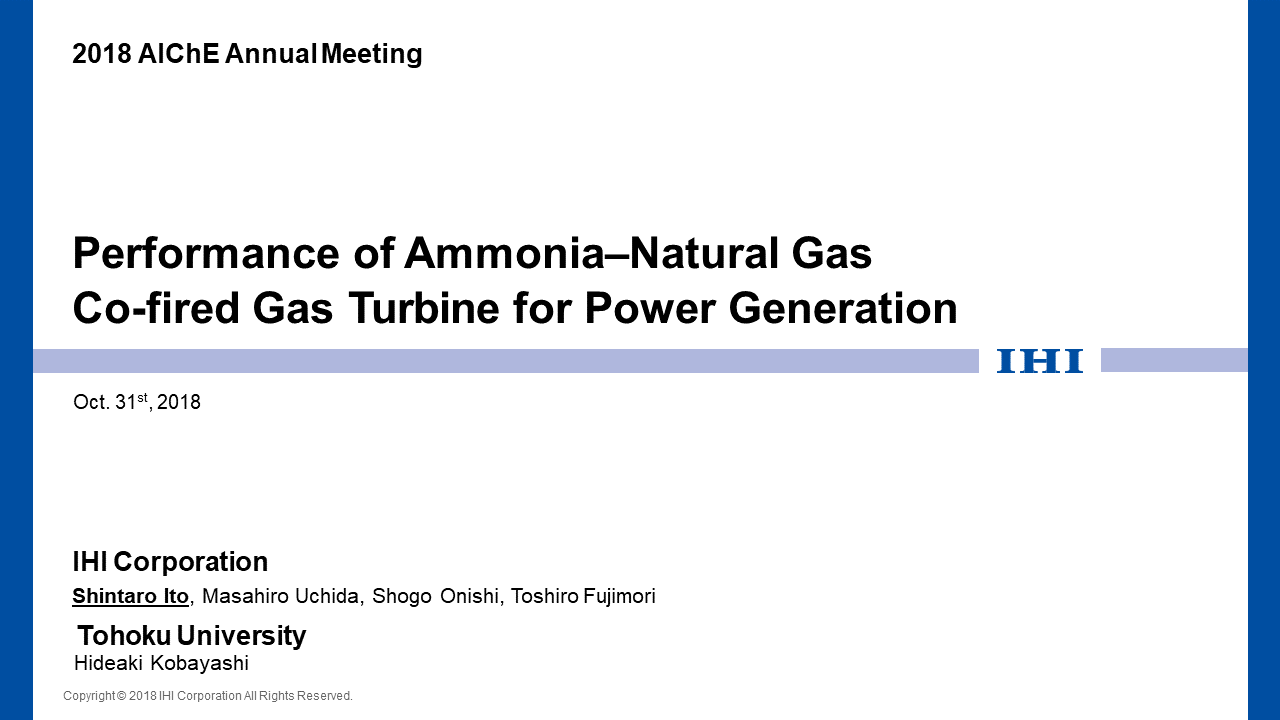Presentation
Performance of Ammonia/Natural Gas Co-Fired Gas Turbine with Two-Stage Combustor
Ammonia has several advantages as renewable energy career [1-3]. Regarding the manufacturing process, the Harbor-Bosch method is already established. For transportation, ammonia can easily be liquefied at room temperature. Therefore, both transportation and storage are much easier than in case of hydrogen. In utilization, ammonia is combustible and used as a carbon-free fuel. However, ammonia has different combustion characteristics from natural gas. For example, the nitrogen atom contained in ammonia molecule causes high NOx emission through fuel NOx mechanisms [3]. Laminar burning velocity of ammonia is much lower; it might increase unburnt ammonia emission and cause unstable operation of gas…

